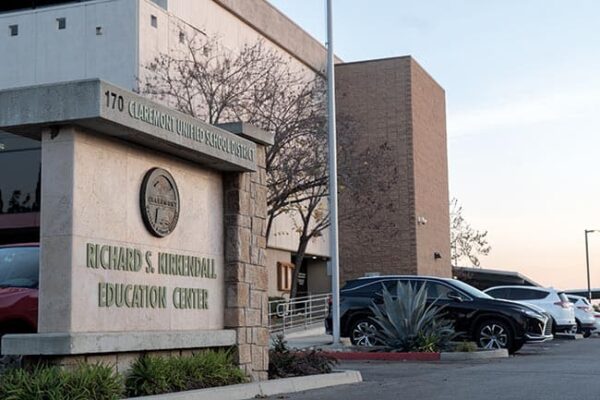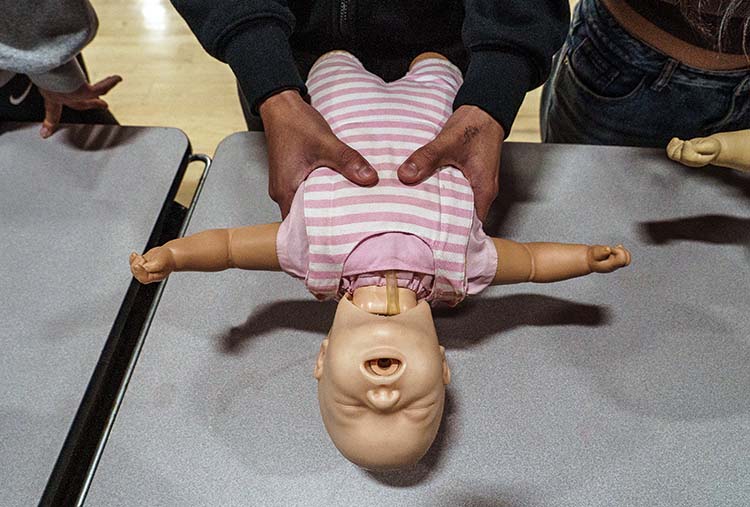New state laws may impact public school, college students

Courier file photo
By Diana Lambert | Special to the Courier
California students, including those in elementary school, will have better access to mental health care, free menstrual products and information about climate change this school year. The expansion of transitional kindergarten also means there will be more 4-year-old students on elementary school campuses.
These and other new pieces of education legislation will go into effect this school year, including a bill that bans schools from suspending students for willful defiance and another that offers college students more transparency around the cost of their courses and the materials they will need to purchase for them.
Here are a few new laws that may impact students in the 2024-25 school year, as reported by EdSource.
Climate change instruction required
Science instruction in all grades — first through 12th — must include an emphasis on the causes and effects of climate change, and methods to mitigate it and adapt to it. Although many schools are already teaching students about climate change, all schools must incorporate the topic into instruction beginning this school year.
Content related to climate change appears in some of the state curriculum frameworks, according to an analysis of Assembly Bill 285, the legislation that created the requirement.
Menstrual products in elementary bathrooms
A new law in effect this year adds elementary schools to the public schools that must offer a free and adequate supply of menstruation products — in order to help younger menstruating students.
Last school year, the Menstruation Equity for All Act went into effect, requiring public schools serving sixth- through 12th-grade students to provide menstruation products. It affected over 2,000 schools.
The new law expands the requirement to public schools that serve third- through fifth-grade students. A Senate analysis of the legislation notes that 10% of menstruation periods begin by age 10, according to a Centers for Disease Control and Prevention report.
The new law requires affected schools to offer free menstrual products in all-gender bathrooms, women’s bathrooms and at least one men’s bathroom on each campus. The legislation, authored by Assemblymember Eloise Gómez Reyes, D-San Bernardino, includes one men’s bathroom on each campus to offer access to transgender boys who menstruate.
Inland Empire Girl Scout Troop 76 advocated for the bill. Scout Ava Firnkoess said that menstruation access is important to young girls, like her, who started menstruating early.
“I have another friend who also started at a young age. She had to use toilet paper and paper towels because she did not have access to menstrual products,” Firnkoess said in a statement. “We think young students who start their periods need to have access to products, not just those who start in sixth grade or later.”
Younger students on campus
Elementary students may seem to be getting a little smaller this year, as transitional kindergarten classes are expanded to children who will turn age 5 between Sept. 2 and June 2.
Transitional kindergarten, an additional grade before kindergarten, was created for 4-year-old children who turn 5 before Dec. 2. It has been expanded each year since 2022 to include more children aged 4. All 4-year-old students will be eligible in the fall of 2025.
Colleges must disclose costs
The typical California college student is expected to spend $1,062 on books and supplies in the 2024-25 academic year, according to the California Student Aid Commission.
The exact costs can be hard for students to predict, leaving them uncertain about how much money to budget for a given class. Assembly Bill 607, which California Governor Gavin Newsom signed last year, requires California State University campuses and community colleges to disclose upfront the estimated costs of course materials and fees for some of their courses this school year. The bill asks University of California campuses to do the same, but does not make it a requirement.
TK exempt from English language test
Students enrolled in transitional kindergarten, also known as TK, are no longer required to take the initial English Language Proficiency Assessment for California (ELPAC). The test, which measures proficiency in listening, speaking, reading and writing in English, is required to be taken within 30 days of enrollment in kindergarten through 12th grade, if parents indicate in a survey that their children speak another language at home.
Previously, transitional kindergartners also had to take the ELPAC when enrolling. But many school district staff and advocates for English learners said the test was not designed for 4-year-old children and that it was not identifying English learners accurately, because the children were too young to answer questions correctly.
Kids can consent to mental health care
A new law that took effect in July makes it easier for children on Medi-Cal who are 12 or older to consent to mental health treatment inside and outside of schools. Children older than 12 on private insurance can already consent to mental health care without parental consent.
Previously, students in this age group could only consent to mental health treatment without parental approval under a limited number of circumstances: incest, child abuse or serious danger, such as suicidal ideation.
“From mass shootings in public spaces and, in particular, school shootings, as well as fentanyl overdoses and social media bullying, young people are experiencing a new reality,” said Assemblymember Wendy Carrillo, D-Los Angeles, author of the bill. “The new law is about “making sure all young people, regardless if they have private health insurance or are Medi-Cal recipients, have access to mental health resources.”
Children who need mental health care but do not have consent from their parents could potentially seek help from social media and other online resources of sometimes dubious quality, according to the legislation.
No willful defiance suspensions
Beginning this school year, and for the next five years, California students across all grade levels cannot be suspended for willful defiance.
Acts of willful defiance, according to Senate Bill 274, include instances where a student is intentionally disruptive or defies school authorities. Instead of being suspended, these students will be referred to school administrators for intervention and support.
SB 274 builds on previous California legislation that had already banned willful defiance suspensions among first-through-eighth-grade students, and had banned expulsions for willful defiance across the board.
Studies show that willful defiance suspensions disproportionately impact Black male students and increase the likelihood of students dropping out of school.
Schools can’t ‘out’ students
After Jan. 1, California schools boards will not be permitted to pass resolutions requiring teachers and staff to notify parents if they believe a child is transgender.
Newsom signed the Support Academic Futures and Educators for Today’s Youth, or SAFETY Act, in July in response to the more than a dozen California school boards that proposed or passed parental notification policies in just over a year. At least seven California school districts passed the policies, often after heated public debate.
The policies require school staff to inform parents if a child asks to use a name or pronoun different from the one assigned at birth, or if they engage in activities and use facilities designed for the opposite sex.
The new law protects school staff from retaliation if they refuse to notify parents of a child’s gender preference. The legislation also provides additional resources and support for LGBTQ+ students at junior high and high schools.
EdSource reporters contributed to this story: Zaidee Stavely, Emma Gallegos, Mallika Seshadri, and Amy DiPierro.










0 Comments